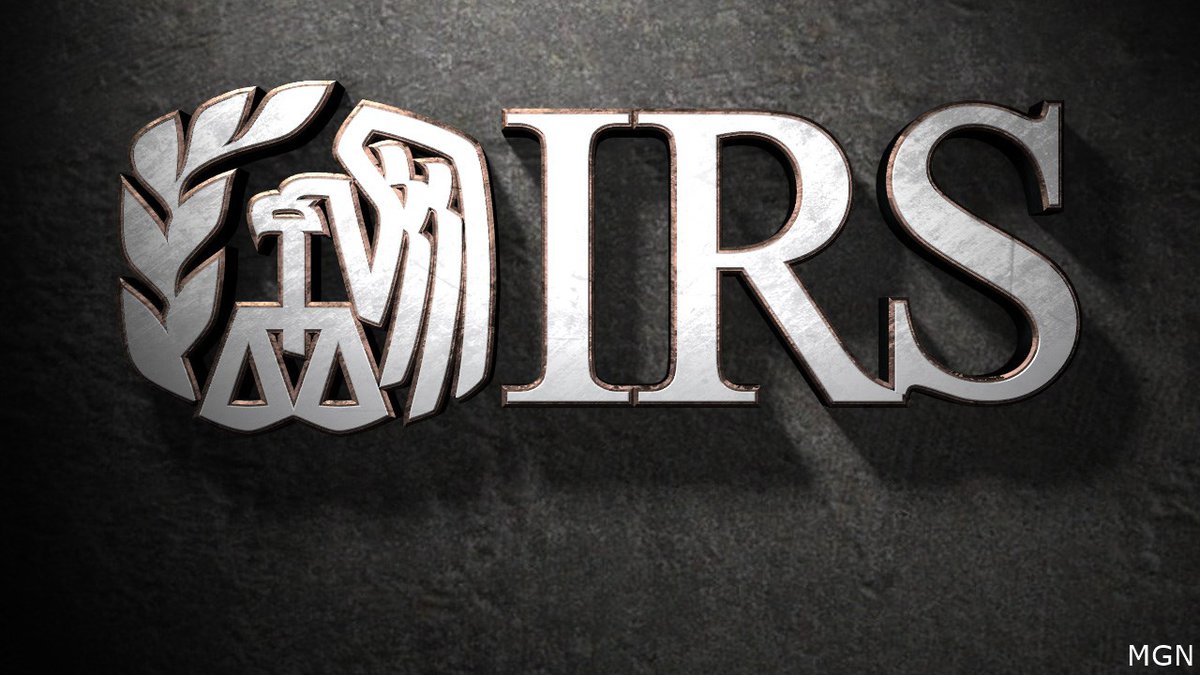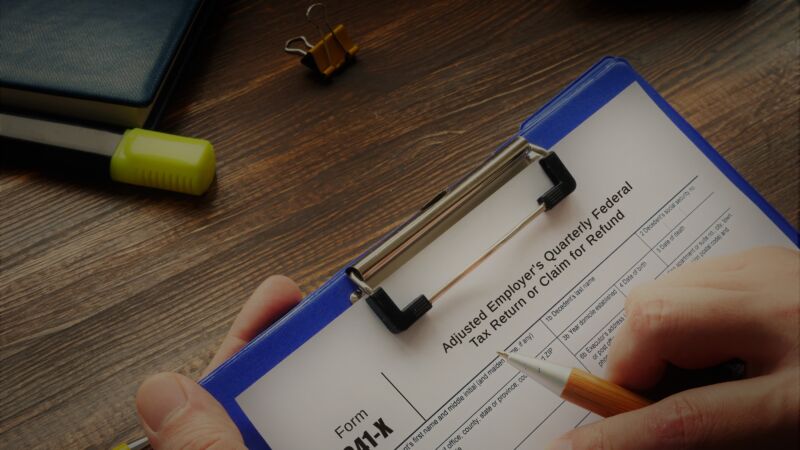
Employee Retention Credit — Eyes Open
The IRS announced issued a warning regarding scams perpetrated by promoters promoting the Employee Retention Credit (ERC), which has now topped the list of this year's "dirty dozen" tax cons. previously, It is imperative for business owners to exercise caution when dealing with the ERC and collaborate closely with their CPA or trusted tax advisor to determine their eligibility.
IRS Commissioner Danny Werfel expressed deep concern about the aggressive marketing tactics surrounding these credits and the associated risks. While the ERC offers valuable benefits to qualifying small and medium-sized businesses, meeting the eligibility criteria is a complex process.
Commissioner Werfel expressed serious concern regarding the overly aggressive promotion of these tax credits. He emphasized the need for businesses to exercise caution when considering filing a claim for these credits. While these credits have undoubtedly offered crucial financial support to countless businesses, there is a troubling trend of promoters misguiding individuals and businesses, leading them to believe they can easily access these credits. It is vital to understand that these pandemic-era credits come with very specific eligibility criteria and are not accessible to just anyone. Commissioner Werfel underlined the fact that the IRS is actively conducting audits and criminal investigations into these fraudulent claims. He strongly encouraged honest taxpayers not to fall victim to these deceptive schemes.
At alliantgroup, we have assisted numerous companies in qualifying for the ERC. However, we have also encountered cases where businesses, referred by their CPAs, fell prey to promoters and clearly did not meet the ERC eligibility criteria. These business owners placed their trust in promoters who vanished after making false promises.
What is particularly alarming is the widespread promotion of ERC schemes through various channels, including radio and TV ads, internet advertising, and even billboards article The allure of the ERC has led to a continuous stream of pitches and solicitations. It's essential to exercise caution when a tax benefit is being advertised on television.
To shed light on some of the frauds and errors we have encountered, particularly related to the second test for ERC qualification—covid-related government orders significantly impacting business operations—let's delve deeper. This article will primarily focus on this test, as it is where we have observed the most issues associated with scammers. The reduction in revenue test for ERC qualification, while not immune to mischief, is less frequently a cause for concern.
In many cases, ERC promoters fail to establish a clear link between the business's impact and a specific government covid order. They also do not provide comprehensive analyses demonstrating that a covid order had a more than nominal impact on the business's operations for each quarter. Often, a blanket statement is made, covering all quarters, such as "had to close the breakroom." Believing that ERC qualification can be easily attained is a misconception.
Promoters frequently file ERC claims on behalf of businesses based on a government covid "order" that is not an actual order but merely advisory or guidance. For example, some promoters falsely claim that CDC guidance constitutes a government order when it does not. These actions do not align with the IRS's guidance, which explicitly states that state of emergency declarations do not constitute government orders. Genuine ERC eligibility requires a genuine government covid-related order that significantly impacted the business for a specific quarter, and this impact must be well-documented and substantiated.
As an example, we encountered a Midwest company that erroneously claimed a $2 million ERC credit for quarters in which no government covid orders existed. Such errors led to the company having to amend its returns and repay the erroneously claimed funds.
When reviewing proposed ERC claims made by promoters, we often notice missing or misapplied elements, such as misapplying controlled group tests, misunderstanding interactions with the Paycheck Protection Program (PPP), and neglecting to consider interactions with other tax credits, incentives, and grants.
For instance, one company we reviewed had claimed a $7 million ERC, only to discover that it was not eligible for any credit. This error stemmed from the promoter's lack of understanding of the aggregation rules for controlled groups. Another provider falsely claimed that one person in a company contracting COVID-19 at one location constituted a more than nominal impact across the entire organization, resulting in an excessive claim of over $300,000.
The Treasury Inspector General for Tax Administration (TIGTA) reported (Semiannual Report page 16) an extreme case of abuse where a return preparer in Utah filed false returns totaling $11 million in ERC claims. This preparer actively encouraged various entities, including single-member LLCs, independent contractors, and sole proprietors, to apply for COVID-related tax credits, including the ERC. Many of these claims were fraudulent, resulting in legal consequences for the preparer.
There are several warning signs to watch out for when dealing with ERC promoters. If a company indemnifies itself and requires clients to sign documents acknowledging that they bear all risks while the promoter merely calculates the credits, this should raise concerns. A reputable tax advisor stands by their work and will support clients in case of IRS scrutiny.
Moreover, if a company promises ERC qualification in minutes and offers blanket eligibility regardless of the specific circumstances or business impacts, extreme caution is warranted. Proving ERC eligibility and passing IRS scrutiny is a complex process that requires meticulous documentation.
We were once asked to review an ERC filing prepared by a payroll company for a small business client, with the filing claiming a $2 million credit. However, upon examination, we found no government covid-related order forming the basis for the claim and no analysis demonstrating how the business had been significantly impacted by covid. In reality, the business was not eligible for any ERC credits. While it wasn't a favorable outcome, it was certainly better than erroneously filing and subsequently undergoing an IRS audit, potentially leading to taxes, penalties, and interest. This would also involve significant time, costs, and stress for the client. It is crucial to remember that the IRS Office of Professional Responsibility holds tax advisors accountable for their role in ERC claims.
The IRS is actively addressing the issue of ERC scams, and audits of these fraudulent filings are expected to be straightforward. In most cases, these audits will reveal that business owners do not qualify for the ERC, leaving them responsible for the tax, penalties, and interest—not the scammers. Business owners must adopt a cautious approach and work closely with their CPA and trusted tax advisor to assess their eligibility for the ERC.
For the covid-related test, commonly, there is no effort by the ERC promoter to tie the impact to a business to a specific government order related to covid (a covid order that actually impacts the business). Further, the promoters do not provide detailed analysis of the impact of a covid order showing that the covid order had a more than nominal impact (for each quarter) on the operations of the business. For example, we will often see a blanket statement covering all quarters that the company was impacted by covid – ex. “had to close the breakroom.” If you think you can mail it in and qualify for the ERC – you are doing it wrong.
We continually see promoters making ERC claims on behalf of the business and the government covid “order” being pointed to is not an ”order” but merely an advisory or guidance. For example, I have repeatedly seen statements from promoters that CDC guidance is a government order (it’s not). Also, for example, my colleagues have seen where a company based their entire analysis based on a Nebraska State of Emergency declaration (the IRS guidance specifically states that state of emergency declarations do not constitute government orders). No, no, no. You need an actual government covid-related order; that covid order has to have a more than nominal impact on your business for that specific quarter. You need to document and substantiate how that government covid order had a more than nominal impact on your business for that quarter.
As an example, on government covid orders, one Midwest company we reviewed was hornswoggled into claiming a $2 million ERC credit for certain quarters – quarters in which no government covid orders even existed. Leading to the client having to amend their returns and give the money back.
As we have reviewed proposed ERC claims done by promoters — commonly provided to us by our CPA-partners on behalf of their clients to verify that the client qualifies for the ERC – other issues we see include missing or misapplying issues such as: misapplying tests for controlled group; interaction with Paycheck Protection Program (PPP); and, interaction with other tax credit, incentives and grants.
For example, with one particular company that we were asked to double check the work – received the unfortunate news from us that the $7 million ERC they claimed was actually a complete zero. The provider, with clearly no tax experience, did not understand the aggregation rules for controlled groups which equated to a company that was well in excess of the employee threshold.
One (scam) provider claimed that since one person in a company got covid at one location, that was tantamount to a more than nominal impact across the organization and therefore claimed in excess of 300k in credits.
Separately, in an example reported by the Treasury Inspector General for Tax Administration (Semiannual Report page 16) of extreme abuse included a Utah return preparer that plead guilty of filing false returns by submitting $11 million in ERC claims. The return preparer actively solicited single-member, limited liability companies (LLCs) to apply for the covid-related tax credits, including the ERC and sick and family leave wages. He also actively solicited independent contractors involved in door-to-door sales, rideshare drivers, sole proprietors, and other Form 1099-MISC, Miscellaneous Income, workers to convert their “businesses” into LLCs, to allow the independent contractors to qualify for COVID-related tax credits. He sought ERC credits for LLCs regardless of whether the LLC was statutorily eligible to receive the ERC, resulting in false and fraudulent claims.
Signs That You Might Be In River City
Signs of trouble are if the company promoting the ERC is indemnifying themselves – ie having the client sign documents stating that they (the client) bears all risk and that the promoter is simply calculating the credit amounts – based on the client’s self-qualification. You want your tax advisor to stand by their work and will stand with you if the IRS calls.
If the company promoting the ERC is advertising qualification for ERC in minutes and blanket qualifying regardless of the specific situation or impacts to the business — be extremely wary. Ensuring and documenting that a business qualifies for the ERC – and will pass IRS scrutiny - is a significant lift.
We had one CPA partner ask us to review a small business client’s proposed ERC filing. In this case, the business’ payroll company had put together the ERC filing – claiming the business was going to get $2 million dollars. When we reviewed the claim for the ERC there was no government covid-related order that served as the basis for the claim; there was no analysis of how the business was subject to a more than nominal impact due to covid. We determined that the business was eligible for zero under the ERC. While not a happy result, a far happier result then making an erroneous filing and then being subject to a full audit by the IRS with taxes, penalties and interest at the end of the day (not to mention the time, cost and grind of the exam). As important, a happy result for the CPA who could easily be in a bad way as well for making an ERC filing on behalf of their client.
Important for tax advisors to bear in mind that the IRS Office of Professional Responsibility (OPR) made clear in a recent bulletin that as the tax advisor to the business claiming the ERC on the return, they have important responsibilities – for which the IRS will look to hold them accountable.
The IRS Man Cometh
As the IRS announcement and bulletin makes clear – the IRS is heavily focused on the scam artists pushing the ERC – and the businesses that are falling for their carnival barker pitch. Business owners are kidding themselves if they think they can point the finger to the scam artist (who will have skipped town long ago) and say “he told me it was ok.”
The IRS will have a fish-meets-barrel moment auditing these ERC scam filings. In most cases, these audits are going to be straightforward and simple for the IRS to find that the business owner doesn’t qualify for the ERC. To be clear, it will be the business owner – not the scammer – who will owe the tax, penalties and interest.
Good for business owners to embrace clean living now. Don’t listen to the radio and tv ads; the internet pitches, the billboards. Business owners need to have their eyes wide open and talk closely with their CPA and trusted tax advisor on whether they qualify for the ERC.





